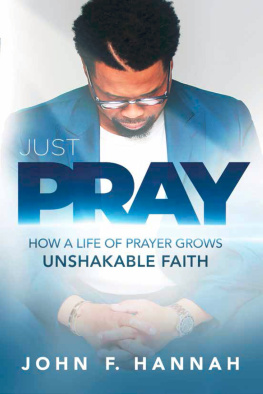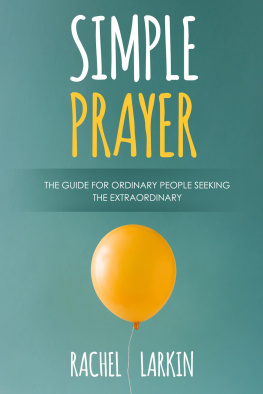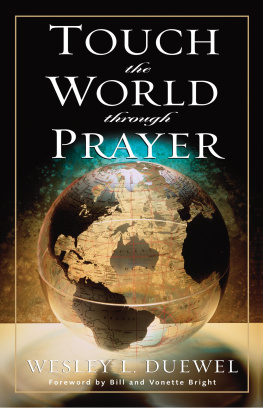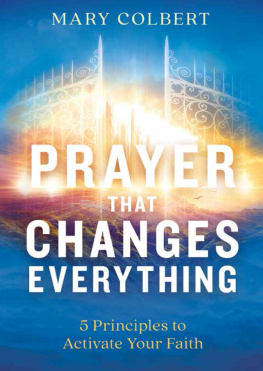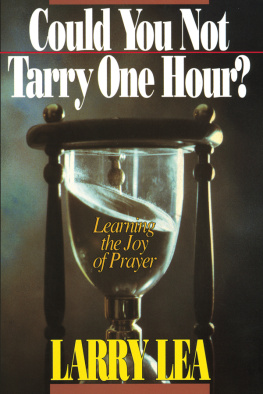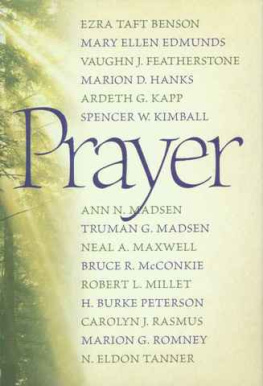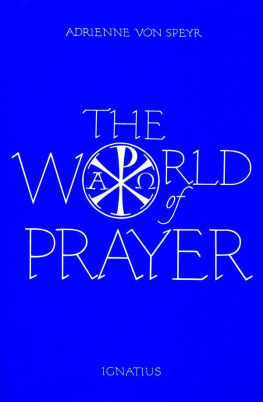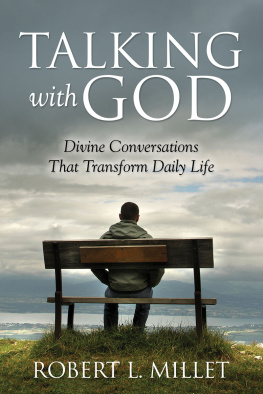
NIHIL OBSTAT: | Father Matthew J. Gutowski, STL |
IMPRIMATUR: | Most Reverend George J. Lucas Archbishop of Omaha, Neb. January 18, 2013 |
THE INSTITUTE FOR PRIESTLY FORMATION
IPF PUBLICATIONS
2500 California Plaza
Omaha, NE
www.priestlyformation.org
Copyright February 1, 2013
The Institute for Priestly Formation, Inc.
All Rights Reserved. No part of this book may be reproduced, stored in a retrieval system, or transmitted by any means, electronic, mechanical, photocopying, recording, or otherwise, without the written permission of The Institute for Priestly Formation.
Printed in the United States of America
ISBN-13: 978-0-9843792-9-3
ISBN-10: 0-9843792-9-0
Scripture texts in this work are taken from the New American Bible, revised edition 2010, 1991, 1986, 1970 Confraternity of Christian Doctrine, Washington, D.C., and are used by permission of the copyright owner. All Rights Reserved. No part of the New American Bible may be reproduced in any form without permission in writing from the copyright owner.
Book design by FAITH Catholic Publishing and Communications, Lansing, Mich.
THE INSTITUTE FOR PRIESTLY FORMATION
Mission Statement

The Institute for Priestly Formation was founded to assist bishops in the spiritual formation of diocesan seminarians and priests in the Roman Catholic Church. The Institute responds to the need to foster spiritual formation as the integrating and governing principle of all aspects for priestly formation. Inspired by the biblical-evangelical spirituality of Ignatius Loyola, this spiritual formation has as its goal the cultivation of a deep interior communion with Christ; from such communion, the priest shares in Christ's own pastoral charity. In carrying out its mission, the Institute directly serves diocesan seminarians and priests as well as those who are responsible for diocesan priestly formation.
THE INSTITUTE FOR PRIESTLY FORMATION
Creighton University
2500 California Plaza
Omaha, NE., 68178
www.priestlyformation.org
Table of Contents
While I was discussing with a seminarian the possible parishes to which he could be assigned for his last year of seminary formation, he revealed to me that he had a particular parish he strongly preferred. I asked him, "Why that parish?" Without hesitating, he said, "Because when I go to that parish for Sunday Mass, I can tell that the people in that parish really pray. The pastor of that parish is teaching the people how to pray, and I want to learn how to do that." After hearing that, I wanted to assign all the seminarians to that priest and parish!
If you are a pastor who has the same noble desire as that seminarian, then keep reading. The Parish as a School of Prayer will meet that desire. If you are a pastor who is trying to write a parish mission statement with just the right words that succinctly express the purpose and mission of your parish, you can stop writing. The Parish as a School of Prayer is a parish mission statement that is more meaningful than any I have read. If you are a pastor who is looking for helpful reading material to give the members of your parish staff and councils, you can stop looking. You are holding it in your hands. The Parish as a School of Prayer not only will assist pastors, but will greatly benefit those who support pastors in carrying out the mission of a parish. It is written in an accessible language that all can understand.
Drawing from the Catechism of the Catholic Church, Blessed John Paul II, and Pope Benedict XVI as his primary sources, Father Scott Traynor holds up with exciting clarity a vision of parish life that is ever ancient and ever new: the parish as a school of prayer. The parish is the school; the pastor is the teacher; and the encounter between man and God prayer is the subject taught. It is a vision that is guaranteed to encourage the priestly heart of any pastor who has gotten bogged down in projects, programs, and committees.
The most needed credential to be a teacher in this privileged school is to know Jesus. Father Traynor does. The Parish as a School of Prayer is filled with lived wisdom from his wide experience as a pastor, spiritual director, seminary formator, spiritual theology instructor, and personal friend of Christ. He can be trusted. So, believe what you read; teach what you believe; and practice what you teach!
Father Thomas Richter
Rector, Cathedral of the Holy Spirit
Diocese of Bismarck, N.D.
Is your parish a genuine school of prayer? What does it mean for a parish to be a "school of prayer"? It was Blessed John Paul II himself who urged priests to transform their parishes into powerhouses of prayer.
Our Christian communities must become genuine "schools" of prayer, where the meeting with Christ is expressed not just in imploring help but also in thanksgiving, praise, adoration, contemplation, listening and ardent devotion, until the heart truly "falls in love." Intense prayer, yes, but it does not distract us from our commitment to history: by opening our heart to the love of God it also opens it to the love of our brothers and sisters, and makes us capable of shaping history according to God's plan .... [I]t would be wrong to think that ordinary Christians can be content with a shallow prayer that is unable to fill their whole life. Especially in the face of the many trials to which today's world subjects faith, they would be not only mediocre Christians but "Christians at risk." They would run the insidious risk of seeing their faith progressively undermined, and would perhaps end up succumbing to the allure of "substitutes," accepting alternative religious proposals and even indulging in far-fetched superstitions .... It is therefore essential that education in prayer should become in some way a keypoint of all pastoral planning.
What is in the urgency of that "must" become schools of prayer? Is it really possible that prayer be a "key-point of all pastoral planning"? How can a priest respond to this exhortation in practical and effective ways?
Why "must" our parishes become genuine schools of prayer? Blessed John Paul II offers the reasons. The world today poses many hazards that are capable of progressively undermining faith. Secularism, relativism, Lacking real, daily, and growing intimacy with God in prayer deprives the Christian of the lived experience of Divine Love. Divine Love alone is capable of inspiring, directing, and sustaining the Christian's mission to transform culture according to God's plan. "I am the vine, you are the branches. Whoever remains in me and I in him will bear much fruit, because without me you can do nothing" (Jn 15:5). Christians are at risk precisely because they do not know how to remain in Christ in the growing intimacy of prayer. Christians who do not pray can do nothing to shape their life, their family, or the world according to God's plan of love. Conversely, the praying Christian can do so abundantly and fruitfully.
The risk that the Holy Father points out is clearly realized in parishes today. Would Sunday Mass attendance really stand at 30 percent if people were learning to pray in such a way that their hearts truly fell in love with God? How many families have led other families to faith in Christ and His Church? Indeed, how many parents and grandparents who at least valued the faith are untouched by the sadness of children and grandchildren who no longer practice the faith in any discernible way? How many parishioners (and priests!) seek their happiness, their strength, their security, their comfort, and their peace from God first of all? How many have evaded the allure of empty substitutes (accomplishment, notoriety, possessions, entertainment) or even far-fetched superstitions? How many experience an intimacy with God that is real and deep enough to sustain them in the face of a cancer diagnosis, or the death of a child, or a betrayal, or the loss of a job, or even ordinary everyday difficulties, disappointments, and failures? How many go beyond superficial and occasional recitations of prayer, such as Grace before meals, an occasional Our Father, or a Hail Mary before going to sleep? How often do parishioners go beyond "a shallow prayer that is unable to fill their whole life?" If not many, then our parishes are full of Christians at risk.
Next page

